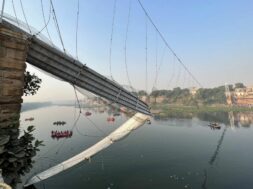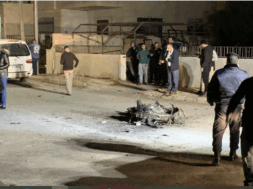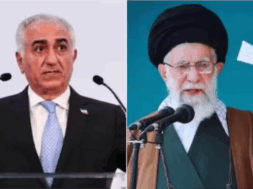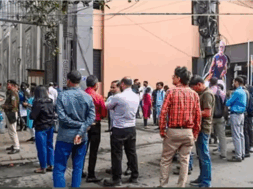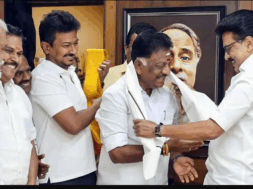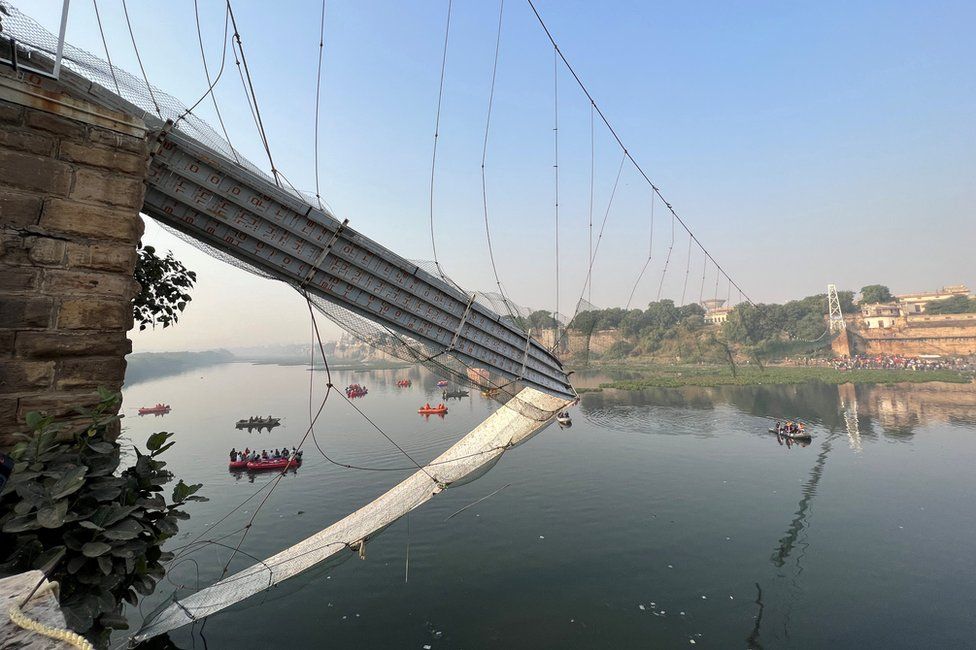
Manas Dasgupta
NEW DELHI, Oct 31: The suspension bridge on the river Machchhu in Gujarat’s Morbi town that collapsed on Sunday evening killing at least 143 people, was re-opened for public without any authorisation much ahead of the schedule, official sources admitted.
The sources said the bridge was reopened by the local private company, which was given the contract for repairing and maintenance of the 150-year old dilapidated bridge, without seeking clearance certificate from the local municipality.
The bridge was also opened on the Gujarati New Year day on October 26 apparently to attract the Diwali holiday crowd much ahead of the schedule. Documents reveal that as per the contract between the Morbi municipal body and Ajanta Manufacturing Private Limited, the famous clock-manufacturing company which is part of the Oreva Group, the bridge was scheduled to be kept shut for eight to 12 months for repairing but was re-opened after seven months. The company did not take a fitness certificate from the civic authorities, Morbi municipal agency chief Sandipsinh Zala claimed.
Apart from the early reopening, every safety rule was also violated. Ajanta sold tickets for visiting the suspension bridge at Rs 17 per head and apparently had issued tickets far in excess of its holding capacity. According to official reports, there were more than 400 people on the bridge at the time of the collapse while the bridge could take the weight of only about 125 people.
Though tickets were sold, there was no apparent crowd control, either by the private company or by the administration. There was allegedly no cap on the number of people on the suspension bridge, which is listed as a popular tourist site in an official Gujarat government website.
Ajanta, a company known as a clockmaker, signed a 15-year contract with the Morbi municipal body to maintain the bridge and collect payment in the form of tickets. The agreement was discussed in January 2020 and the deal was signed in March this year. According to the agreement that is valid till 2037, the company would raise the ticket price every year. It is not clear how the bridge was reopened to people without any apparent official approval.
The suspension bridge, 233 metres long and 1.5 metres wide, was inaugurated in 1880 by the British colonial authorities and made with materials shipped from England, reports said. It was reopened on Wednesday after seven months of repairs despite not having a safety certificate, and that video footage from Saturday showed it swaying wildly.
District police have launched an enquiry against the contractor. The state has set up a five-member team to probe the tragedy. The Gujarat government on its website describes the bridge as “an engineering marvel.”
